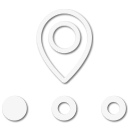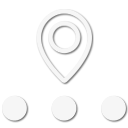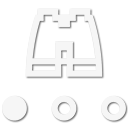Hello, I am new to overlanding and this is my first post. I am starting to build up my rig (Jeep JKU '15). This summer I plan on taking my first overland trip out West. I plan on following light off road trails but who knows what I may get into.
I don't have access to all the bells and whistles right now since I am new and it's going to take time to get all the ideal upgrades and accessories. So my question is what are the first things you would upgrade or what gear could you not overland without?
I plan on upgrading my tires to All Terrain tires (probably BF Goodrich) and am getting a roof top tent (I know it's not a necessity but RTTs are what drew me into overlanding so it is something I want to get first). Other considerations are a front bumper and winch.
Let me know what you think, thanks!
I don't have access to all the bells and whistles right now since I am new and it's going to take time to get all the ideal upgrades and accessories. So my question is what are the first things you would upgrade or what gear could you not overland without?
I plan on upgrading my tires to All Terrain tires (probably BF Goodrich) and am getting a roof top tent (I know it's not a necessity but RTTs are what drew me into overlanding so it is something I want to get first). Other considerations are a front bumper and winch.
Let me know what you think, thanks!







